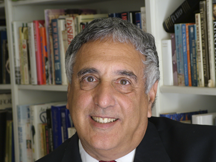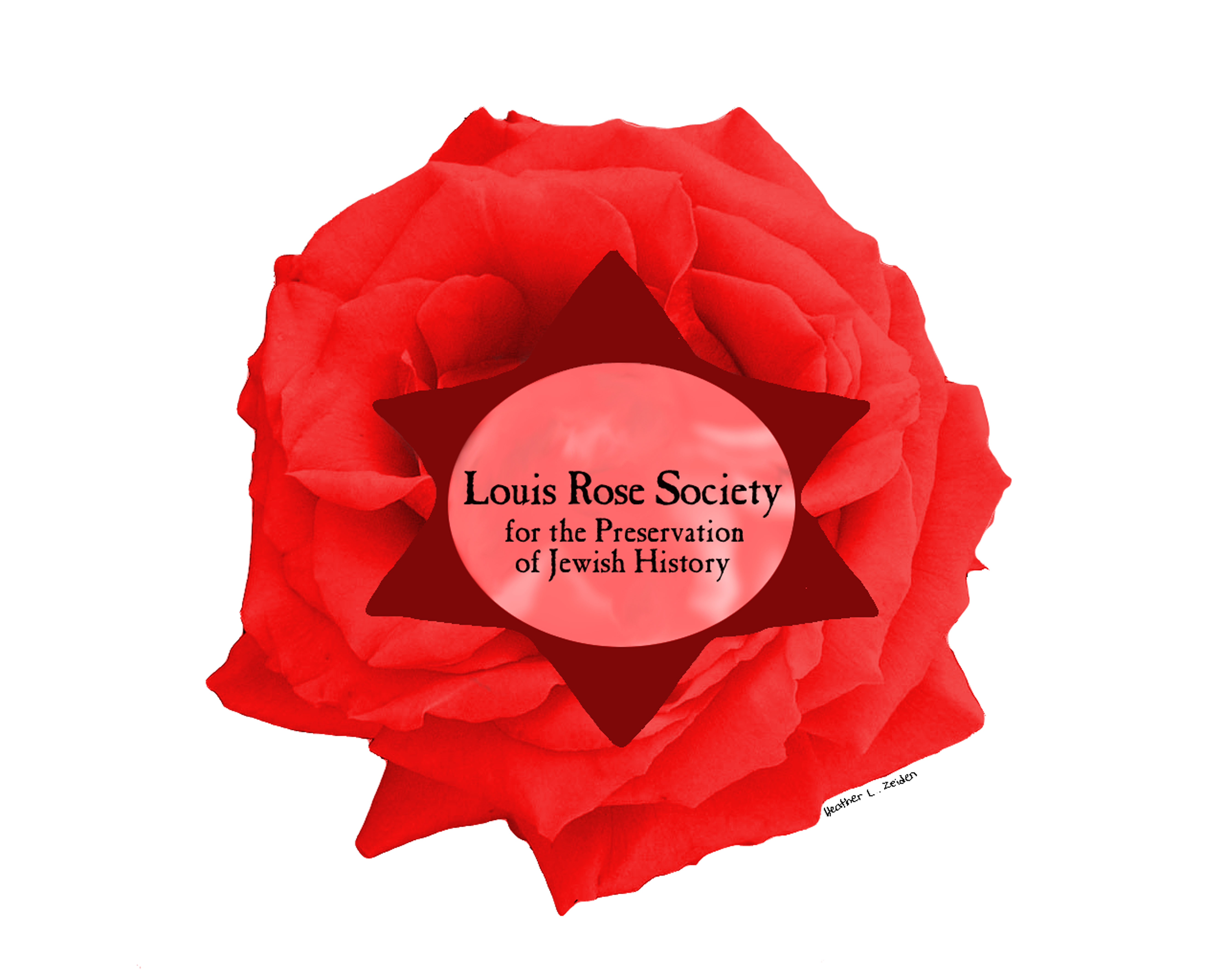________________________________________________________________
 The
Jewish
Citizen The
Jewish
Citizen
by Donald H. Harrison
__________________________________________________
Our solidarity with South
Koreans
SAN DIEGO—Like many in my generation I can remember how insecure my parents
felt about the standing of Jews in the United States. They knew of jobs,
neighborhoods and country clubs that refused entry to people just because they
were Jews. They feared that latent anti-Semitism might someday burst to the
surface as it had in Europe. Invariably, whenever something bad happened,
the fear would jump to my mother's lips. "I just hope no Jews are involved!"
she'd say.
In the aftermath of the massacre at Virginia Tech, I have learned that our
Jewish community is not the only one that suffers such fears. South
Koreans across the country expressed similar insecurity, apologizing for the
actions of the killer, Cho Seung-Hui, and expressing the hope in interviews and
at prayer services that Americans will understand how profoundly grief-stricken
they are that a countryman of theirs could be responsible.
It was enough to make your heart break twice: first for the victims of the
Virginia Tech massacre, most of whom were simply sitting in their classrooms
when death came and found them, and second for the extra measure of anguish that
the blameless South Korean community is feeling.
I remember back to November 22, 1963, the day of the assassination of John F.
Kennedy, when it was announced that police believed they had captured the
assassin, and how my mother spontaneously prayed aloud, "O God, please don't let
him be Jewish." And I can still see my mother cringe when later in those awful
blurred days of tragedy, Oswald was murdered in full view of the television
cameras and the shooter turned out to be Jack Ruby, a Jew. Watching your
mother turn white with fear is a memory difficult to erase.
Of course, the Korean community is not in any way accountable for the actions of
Cho Seung-Hui, any more than the Jewish community was responsible for those of
Jack Ruby. Both our communities include people of many descriptions,
including some very good and, alas, some very bad.
I want to express my solidarity with the South Korean community, and to hope
that they, like the rest of us who mourn, may soon find comfort.
* *
Sometimes in tragedies such as this massacre, although all the victims suffered
similar fates, the names of one or two individuals leap to the fore. In
the Holocaust, of course, there was Anne Frank, who came to symbolize the
unrealized hopes of the children of the Shoah. In the bombing of the
cafeteria at Hebrew University, there was San Diego's own Marla Bennett who, not
long before her death, had written how just in choosing which route to walk from
one place to another in terror-stricken Jerusalem, she had felt that she was
making a life or death decision. Her story, ironic in light of what
subsequently happened to her, personalized the tragedy for millions of people
around the world.
It was the turn at Virginia Tech, unfortunately and ironically on Yom Hashoah,
for Liviu Librescu to emerge as the unforgettable victim. A Romanian by
birth, he had survived the Nazi Holocaust of his childhood. What memories must
have come back to haunt him as he heard the gunman repeatedly firing his weapon
as he came closer and closer to the classroom where Librescu taught engineering!
And what nobility the professor demonstrated by using his own body to bar the
door as some students jumped from the second-story window to safety and others
hid behind overturned desks. The bullets that penetrated through the door
found their target in Librescu, who in that moment came to forever symbolize the
role that faculty members serve as mentors to students. And may every student
who ever bridled at a professor who graded too hard, or seemed unyielding on the
deadline for an assignment, always remember the true spirit of teaching as
represented in that moment by Professor Librescu! Librescu died a hero,
shm'a yisroel.
* *
Cho's known derangement brings
medical ethics issues to the fore
By Joel Moskowitz,
MD
SAN DIEGO—There has been considerable discussion in the media about whether
authorities should have intervened in the life of Virginia Tech gunman Cho Seung-Hui,
perhaps by committing him to a mental institution before he went on his rampage.
As a retired forensic psychiatrist, this is a subject that interests me deeply.
Some background and questions need to be considered.
In 1974, a legal decision came into the mental health therapeutic
relationship. A graduate student from India at the University of
California at Berkley had emotional feelings for Tatiana Tarasoff, a
student from Brazil. He had never dated before, only kissed her a few
times and was incensed at what he perceived her flaunting her dating other
men. Mr. Poddar, the Naval architecture student, sought help at the
University Health Services. He told Dr. Moore that he intended to kill
Tatianna. He intended to get a gun and shoot her. Dr. Moore alerted the
Campus police and asked that they arrange for Mr. Poddar's psychiatric
hospitalization. The campus police having interviewed Mr. Poddar and
obtaining his promise that he would stay away from Ms. Tarasoff released
him.
Over the summer Tatianna went to visit her aunt in Brazil. Meanwhile
Poddar moved in with her brother! When she returned, he stalked and
stabbed her to death.
Subsequent legal decision mandated that a therapist bears a duty to warn people
who might be threatened as the result of a patient's deranged mental condition.
This presents a conundrum. What about confidentiality? Who is able with any
accuracy to predict the actions of another? Not even a psychic psychiatrist.
There is an aphorism that psychiatrists are best at predicting the past!
In the case of the Virginia Tech killer, there were many signals even to
the extent that the State of Virginia found that he was a danger. How did
this menace wind up living in a dorm? On a recent TV news show, an
'expert' from John Jay College of Justice in New York remarked that there
were several on campus who were unstable and whose actions might lead to
violence. If he knows this, why isn't something being done to detect and
correct these dangerous persons and situations? Should applicants to
college have to consider how dangerous their fellow students might be before
deciding what college to attend?
Have Americans become inured to the strange and bizarre in the service of
allowing people to do 'their own thing'. Cho, in retrospect, was reported as
weird, isolative, noncommunicative, a writer of disturbing stories, and as one
who behaved in antisocial ways such as stalking female
students. Experienced mental health clinicians will readily admit that
emotionally distressed persons give many signals before they act in
antisocial or violent ways. Often they tell their physicians who miss the
albeit masked cry for help.
Is there some wider lesson? If we accept that past behavior is the most
decisive criteria, can we conclude that groups whose philosophy is tinged
with threats, rage and acts of gleeful destruction of human lives must be
identified and action taken to prevent the consequences of their mental
state? Can we agree that heads of state have even greater potential to do
harm? Surely some will assert that the United States is not immune from
such threats. In the case of the Virginia Tech killer, many knew that he
was strange and doubtlessly steered clear of him. Why was there no
intervention? Was it denial or some misguided and overactive commitment to
the concept that people should be left to do their own thing?
Tolerance for different behaviors makes for a colorful and stimulating
heterogeneity of individuals. But the question is have we gone too far? After
all, it could be said that cancer cells are simply doing their own
thing. Whether it beone's next door neighbor or the philosophy of the country
next door (remembering it is a small world after all), passivity
may be dead wrong.
ZOA says intervention for Egyptian Jewish
family proved to be 'the real thing' for Coke
NEW YORK (Publicity Release)— The
efforts of the Zionist Organization of America (ZOA) have triggered
important new developments in the case of the Bigio family against the
Coca-Cola Company.
The Bigios – a Jewish family that lived in Egypt and owned land and
factories there since the early 1900’s – had their property forcibly stolen
from them by the Egyptian government in 1962, in a campaign of anti-Semitism
that caused almost one million Jews in Arab/Islamic countries to lose their
homes, property and livelihoods.
Since 1994, Coca-Cola has been using and occupying the Bigios’ property,
knowing full well of the immoral and anti-Semitic manner in which the
property had been taken from them over 30 years before. The Bigios
repeatedly appealed to Coke to compensate them for the company’s use of
their property. When the company refused, and when the Bigios’ repeated
efforts to obtain justice in Egypt proved futile, the family sued Coca-Cola
in a New York federal court. The lawsuit has been pending for 10 years, the
merits of the Bigios’ claims still not having been reached because of
Coca-Cola’s legal maneuverings.
Learning of the Bigios’ plight, the ZOA
took action. Susan Tuchman, the Director of the ZOA’s Center for Law and
Justice, filed an amicus curiae
(“friend of the court”) brief on behalf of the Bigio family in its lawsuit
against Coca-Cola. The ZOA also publicly called for a boycott of Coca-Cola
products until Coca-Cola reached a fair settlement with the Bigios. And,
the ZOA planned a public demonstration at the annual meeting of Coke
shareholders, which was scheduled for Wednesday, April 18, 2007, in
Wilmington, Delaware. A sizeable number of protestors planned to
demonstrate at the meeting to protest the company’s actions toward the
Bigios.
The day before the shareholders’
meeting, two senior Coca-Cola officials contacted ZOA National President
Morton A. Klein, to see what could be done to call off the protest.
Coca-Cola agreed to permit Leonard Getz, a Coca-Cola shareholder and the
ZOA’s national vice president, to ask a question about Coca-Cola’s treatment
of the Bigios at the meeting. Mr. Getz had been so concerned about
Coca-Cola’s treatment of the Bigios that in December 2006, he submitted a
shareholder proposal to Coke that he requested be included in the Company’s
proxy materials for the annual meeting. The proposal sought for Coca-Cola
to “compensate the Bigio family fully and fairly for their loss, to correct
the terrible injustice that this family has suffered.” Although noting that
the shareholder proposal satisfied all procedural requirements, Coca-Cola
had nevertheless decided to exclude the proposal from its proxy materials,
thus keeping the company’s conduct toward the Bigios from being brought to
shareholders’ attention at the annual meeting. With the threat of a ZOA
demonstration outside the shareholders’ meeting, Coca-Cola promised that the
ZOA’s Getz would be permitted to ask a question about the Bigios’ case at
the meeting.
In addition, Coca-Cola
agreed that within 48 hours, Coca-Cola senior officials would contact the Bigios’ lead attorney – renowned Washington, D.C. litigator Nathan Lewin –
to discuss the possibility of a fair and reasonable settlement with the
Bigios. Until this agreement was reached on Tuesday, Coca-Cola had made no
such overtures and has never offered the Bigios anything.
Coca-Cola fulfilled both
commitments. With Morton Klein at his side, Leonard Getz raised the plight
of the Bigios at the shareholders’ meeting on Wednesday, April 18th
at the Wilmington’s Hotel du Pont. Mr. Getz asked the following question at
the meeting, which was led by Coca-Cola’s Chairman and Chief Executive
Officer, E. Neville Isdell:
Mr. Isdell, Coca Cola proudly labels itself as a concerned
citizen of the world, and is guided by its own Code of Conduct, which
emphasizes that the company must act in every instance with honesty,
integrity, accountability and respect and never to engage in behavior that
harms its reputation.
“If you wouldn’t want to read about it in the
newspaper – don’t do it” – such says your Code of Conduct. Yet for fourteen
years, Coke has taken a path contrary to its own principles by knowingly
occupying and financially benefiting from expropriated property – that is,
stolen property, taken from the Egyptian Jewish family of Raphael Bigio
during an Egyptian Arab anti-Semitic campaign that took place in Egypt over
40 years ago, just about the time you started with Coca-Cola. Coke did
business with the Bigio family since the 1930’s. Coke knew and knows that
the property belonged to the Bigios.
"So why has Coke helped legitimize this theft? And why has
Coke ignored the Bigios’ rightful claim to be fairly compensated by Coca
Cola for using the Bigio family’s factory and land, even after a federal
district court ruled that this case can be heard in a U.S. court? As a
shareholder, as a fellow concerned citizen of the world, I would like to
know how Coke plans to fairly compensate Raphael Bigio for the loss of his
family’s property on which Coca Cola is currently trespassing. Thank you. "
Coca-Cola’s Neville Isdell
responded that since the company does not own the property that belonged to
the Bigios (which had not been the ZOA’s claim; Coke has been leasing the
property from a government-owned entity, though knowing that the property
had been stolen from the Bigios by the Egyptian government), this “really
has to be a dispute between the property owner and the claimant” (i.e., the
Bigio family). According to Mr. Isdell, “if there was anything more that we
thought we would be able to do, we certainly would do it.”
The day after the meeting,
Coca-Cola officials held discussions as promised with the Bigios’ attorney,
Nathan Lewin. Additional discussions are expected.
ZOA National President
Morton A. Klein applauded these recent developments, and expressed his hope
for a just settlement of the Bigios’ claims, without further delay, so that
this tragic case could finally be brought to a close. “We were heartened by
Coca-Cola’s decision to permit Len Getz to bring the Bigios’ plight to the
attention of shareholders at the annual meeting. And we are pleased that we
were able to get Coca-Cola officials to finally communicate with the Bigios’
attorney about the family’s dispute with Coke. We’ve never claimed that
Coca-Cola perpetrated the campaign of anti-Semitism that the Bigios were
subjected to in Egypt, and that close to one million other Jews suffered in
the Arab and Islamic countries in which they lived. We’ve also never
claimed that Coca-Cola owns the property that belonged to the Bigios. But
there’s no doubt that Coke has been participating in and benefiting from
Egypt’s anti-Semitism campaign, by occupying and using property that the
company knows full well was stolen from the Bigios by the Egyptian
government for one reason only: the Bigios were Jews. Coca-Cola can easily
right this shameful wrong, by reaching a fair settlement with the Bigio
family as soon as possible.
“We were pleased that a
large number of Coke board members attended the shareholders’ meeting –
including Sam Nunn, the former U.S. Senator from Georgia, and Peter Ueberroth, the former Commissioner of Baseball – who have now learned about
the Bigios’ longstanding problems with Coca-Cola. We hope that they will
take action to resolve this tragic situation, quickly and fairly.”
Advertisement:.J

---------------------------------------------------------------------------------------------
The Jewish Grapevine

COMMUNITY WATCH—Rabbi Laurie Coskey, executive director of the
Interfaith Committee for Worker Justice, participated in a Unity in
Diversity workshop at Palomar College this evening, at which her appearance
and those of members of the Baha'i faith were featured.
CAMPUS WHIRL—Rabbi Yehoudah Hadjadj of Chabad at UCSD plans to
conduct special memorial prayers at 11 a.m. and 1 p.m. tomorrow (Friday) at
Warren College for the victims of the Virginia Tech Massacre.
Later tomorrow, Rabbi Chalom Boudjnah of Chabad at San Diego State
University will officiate at pre-Shabbat candlelight service at 6:30
p.m. to honor the victims. The Chabad House at 6115 Montezuma Road also will
light its 15-foot Menorah for the solemn occasion... Phil Rosenfield,
a graduate student in astronomy at San Diego State University, has a
thought-provoking
commentary in The Daily Aztec on the significance of Google Earth
linking with the Holocaust Memorial Museum to monitor the destruction of
villages in the Darfur region of the Sudan
ISRAEL CONNECTIONS—Hillel Mazansky
passed along a powerpoint
essay on the works of Israeli photographer Dror Davidman. A word
of caution to Orthodox readers and those with juveniles, Davidman's
photography includes some female nudes.
------------------------------------------------------------------------------------0
 Jews
in the News
------------------------------------------------------------- Jews
in the News
-------------------------------------------------------------
News spotters: Dan Brin in Los Angeles, Donald H.
Harrison in San Diego, Marsha
Sutton in North San Diego County. To see a
source story click on the link within the
respective paragraph. If you spot a Jewish-interest story in your
favorite publication,
please send us the link.
_______________________________________________________________________
*U.S. Senator Barbara Boxer (D-Calif.), who chairs the Senate
Environment and Public Works Committee, has set up a
committee website to tell lay persons
what they can do to reduce carbon dioxide emissions. David Whitney of
MCT News Service has
the story in today's San Diego Union-Tribune.
*Supreme Court Justice Ruth Bader Ginsburg wrote a dissenting opinion
in the court's decision yesterday to uphold the ban on partial birth
abortions. She described the majority's decision as "alarming" adding
that it "tolerates, indeed applauds, federal intervention to ban nationwide
a procedure found necessary by the American College of Obstetricians and
Gynecologists." Associated Press reporter Mark Sherman's
story is in today's San Diego Union-Tribune.
*Kitty Carlisle Hart, actress and singer who had been a favorite
panelist on the long-running television show To Tell The Truth, has
died at age 96. Dennis McLellan wrote the
obituary in today's Los Angeles Times.
*The coffin of Liviu Librescu was carried through the
Borrough Park section of Brooklyn, where Holocaust survivors could salute a
man who died a hero's death. A
story by Luis Perez of Newsday appears in today's Los Angeles
Times.
*Gerald Parsky, chair of four committees advising the Bush
administration on appointments, has recommended interim U.S. Attorney Karen
Hewitt and former Assistant U.S. Attorney John Rice, as candidates to
replace Carol Lam, whose firing along with those of other U.S. attorneys
across the nation now is the subject of congressional hearings. Kelly
Thornton has
the story in today's San Diego Union-Tribune.
*Sumner
M. Redstone, executive chairman of Viacom, has donated a total of $105
million to three medical centers including Cedars-Sinai in Los Angeles.
The
story
by Thomas S. Mulligan appears in today's Los Angeles Times.
|


